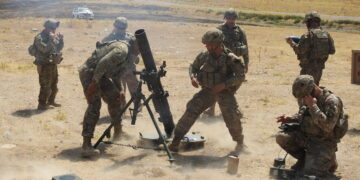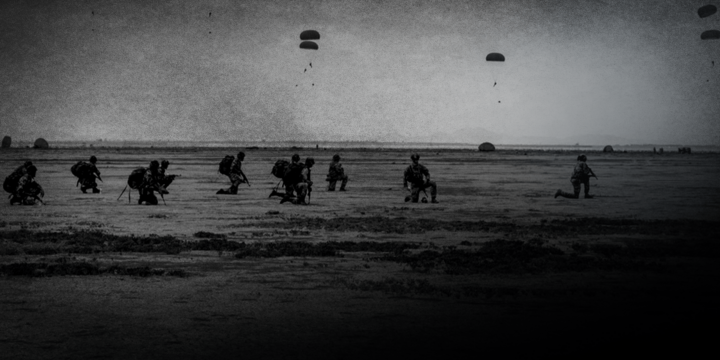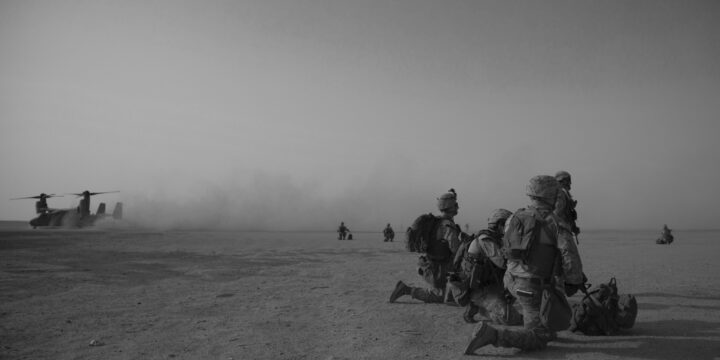February 5, 2019
Foreign policy experts supporting ending “endless wars,” withdrawing U.S. forces from Syria and Afghanistan
By Benjamin Friedman, Michael Desch , and Barry Posen
FOR IMMEDIATE RELEASE:
February 5, 2019
Contact: press@defensepriorities.org
WASHINGTON, DC—In tonight’s State of the Union address, President Trump outlined a significant change in U.S. foreign policy, calling for an end to “endless wars,” including our 17-year war in Afghanistan and our military entanglement in Syria’s civil war.
Defense Priorities Policy Director Ben Friedman and renowned international relations experts Barry R. Posen, Ph.D. and Michael C. Desch, Ph.D. issued the following statements.
Benjamin H. Friedman, Defense Priorities Policy Director:
“In response to the attacks on 9/11, the United States was right to go to war in Afghanistan to decimate al-Qaeda and the Taliban government which harbored them. America won that war.
“Since then, we have been losing a second war fought to extend the Afghanistan central government’s rule to the whole country. After 17-plus years; more than a trillion dollars expended, much of it debt financed; 2,400 American servicemembers killed; and many more wounded, it is past time to end the U.S. war there entirely.
“The cost of building a modern Afghan state is unrelated to core U.S. security and thus unjustified by a permanent commitment. It is irresponsible for U.S. leaders to keep wasting U.S. military lives and burning taxpayer funds in an evident failure.
“U.S. counterterrorism does not require continuing the war there. What denies al-Qaeda haven in Afghanistan now is what will deny it after U.S. ground forces leave: the political will to strike terrorist bases that arise, the surveillance and strike capability to do so, and the ability to deter local actors from harboring terrorists. Washington should have abandoned the myth that U.S. safety depends on endless counterinsurgency missions long ago.”
Michael C. Desch, Ph.D., Director of the Notre Dame Security Center (NDISC):
“President Trump is certainly correct to call for an end to U.S. military commitments in Syria and Afghanistan, places where we have achieved all we can as an outside actor. Now it is time for local actors to step up. If they will not or cannot, we ought to make our peace with those groups who can.
“It is well past time to wrap up America’s longest war and bring the troops home from Afghanistan. The al-Qaeda elements responsible for 9/11 and the Taliban who provided safe haven have long been destroyed. With the successful military mission to liberate ISIS-held territory, it is time to withdraw U.S. forces from Syria, as well.
“Our problem is that since the end of the Cold War, the United States has too quickly abandoned diplomacy. Diplomacy, like military force, is an indispensable tool of statecraft. It is time to start using all of the tools at our disposal rather than relying on our military, and that means negotiating exit strategies from Syria and Afghanistan.”
Barry R. Posen, Ford International Professor of Political Science at MIT, writes in USA Today:
“War is the extension of policy, aimed at national goals. Otherwise it is just waste. It is plain that we have no actual strategic policy in Afghanistan—no plausible purpose other than using taxpayer money, the lives of American soldiers and the deaths of Afghan civilians caught in the crossfire to protect U.S. leaders against the possibility of future blame. America’s longest war should stop.”
Authors

Barry
Posen
Ford International Professor of Political Science, Security Studies Program
Massachusetts Institute of Technology
More on Counterterrorism

Featuring Daniel DePetris
October 8, 2025

By Daniel DePetris and Christopher McCallion
July 16, 2025

Featuring Rosemary Kelanic
July 15, 2025

By Daniel DePetris and Christopher McCallion
July 2, 2025
Events on Counterterrorism






